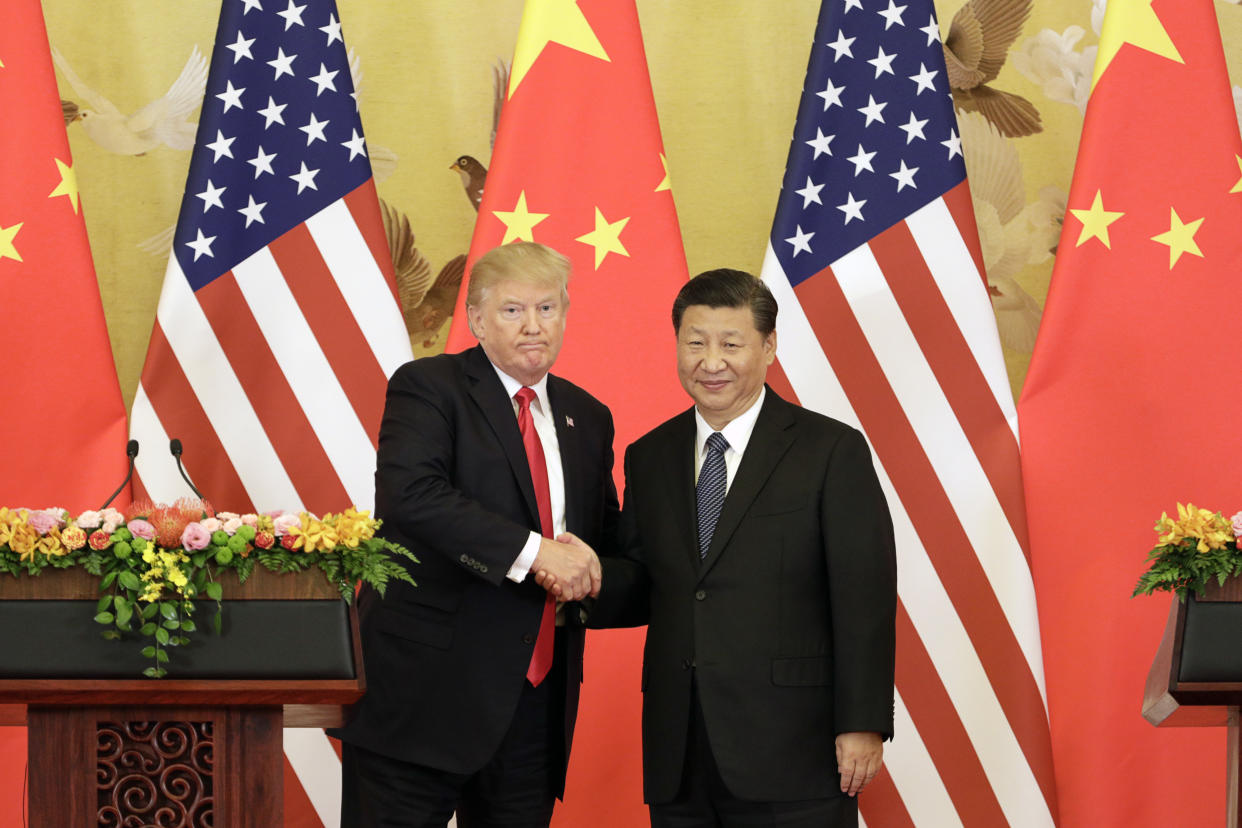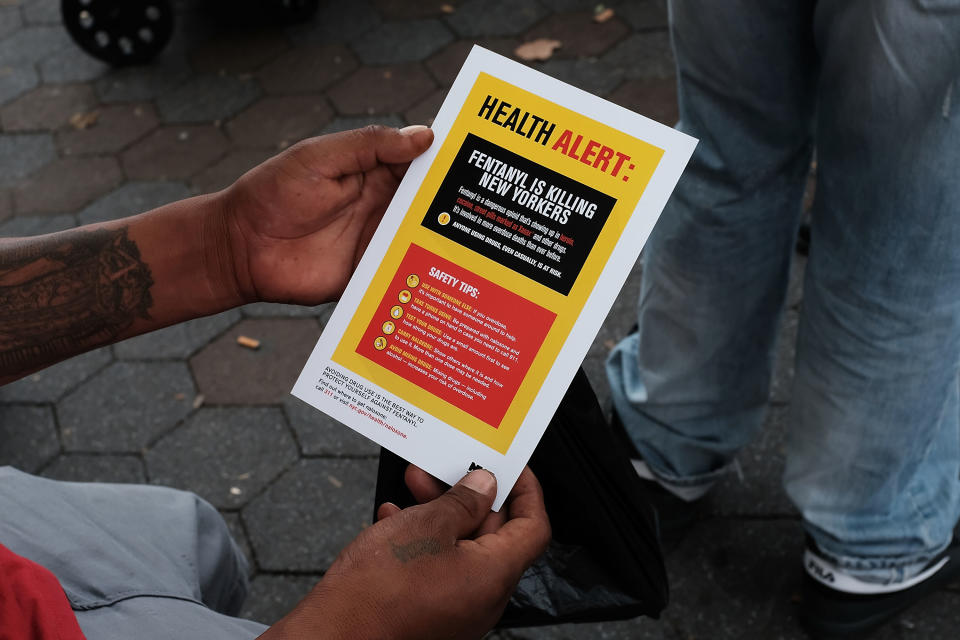Trump calls China's criminalization of fentanyl a 'game changer' for the opioid epidemic – but is it?

Last week the Centers for Disease Control and Prevention released staggering new data that shows over 70,000 Americans died of drug overdoses in 2017 alone. It’s a record-breaking number that surpasses the height of the AIDS epidemic — and stems largely from one class of drugs: opioids. The sobering report cited, specifically, a lethal rise in a powerful synthetic opioid, known as fentanyl.
Just days later, President Donald Trump concluded a meeting with President Xi Jinping of China — a country which is a major source of the drug — by promising that a crackdown was in place. “Very importantly, President Xi, in a wonderful humanitarian gesture, has agreed to designate Fentanyl as a Controlled Substance,” the statement reads. “Meaning that people selling Fentanyl to the United States will be subject to China’s maximum penalty under the law.”
The move is the latest in Trump’s attempt to stem the tide of the opioid crisis — which he deemed a national “Public Health Emergency” last October. But what is fentanyl exactly, and will President Xi criminalizing it actually help?
Fentanyl, created by a Belgian scientist in 1960, was initially seen as a breakthrough in the world of analgesics, offering 100 times the pain relieving strength of morphine. Approved for use in the U.S. in 1968, it was initially only used intravenously, often in the wake of surgery, providing relief in small but powerful doses.

But in the decades that followed, as the patent on its intravenous use expired, more drug companies began to find new ways to give the drug. Today, it’s classified as schedule II substance by the Drug Enforcement Administration, and is available in multiple forms that include: a patch, lozenge, tablet, nasal spray, and film. For cancer patients suffering from excruciating chronic pain, it can be lifesaving.
But for heroin users looking to increase their high, it can be deadly. Fentanyl-laced heroin, which has been making the rounds on the black market for decades, poses a huge threat. In an interview with Forbes, Lewis Nelson explained that it’s not necessarily because the drug itself is more dangerous than heroin or morphine — but that because it’s more powerful and less regulated.
“The only thing killing you is respiratory depression,” Lewis Nelson, MD, medical toxicologist and emergency physician at NYU’s School of Medicine told Forbes. “If I took a few times the therapeutic dose of an opioid, my breathing would slow, and I might die in several hours — it’s a slow spiral toward death. If you took 10 times the dose, you’d likely die, and if you took 100 times, you’d die immediately.”
According to the National Institutes of Health, synthetic opioids — mostly fentanyl — have now surpassed other opioids to become the “most common drug” involved in a lethal overdose. The U.S. had long suspected that China was the main supplier of fentanyl — through online drug sales — and in 2017, filed the first two indictments against Chinese manufacturers for supplying them.
Trump’s new agreement with President Xi seems like it could help to curb the deadly opioid epidemic — and in tweets about the meeting on Wednesday, Trump said just that, calling it a “game changer.”
One of the very exciting things to come out of my meeting with President Xi of China is his promise to me to criminalize the sale of deadly Fentanyl coming into the United States. It will now be considered a “controlled substance.” This could be a game changer on what is…….
— Donald J. Trump (@realDonaldTrump) December 5, 2018
…..considered to be the worst and most dangerous, addictive and deadly substance of them all. Last year over 77,000 people died from Fentanyl. If China cracks down on this “horror drug,” using the Death Penalty for distributors and pushers, the results will be incredible!
— Donald J. Trump (@realDonaldTrump) December 5, 2018
But not everyone agrees. In an email with Yahoo Lifestyle, Grant Smith, deputy director of national affairs for the Drug Policy Alliance, argues that the move is a step backwards. “Draconian criminal punishments for fentanyl will actually make the problems associated with this drug much worse than they are now. This won’t reduce addiction and overdose deaths in the U.S., but it will incentivize the proliferation of even more potent drugs that will further exacerbate the crisis,” Smith tells Yahoo Lifestyle. “Trump’s push for China to execute more of its citizens for drug offenses is morally repugnant and ignores the decades-long failure of extremely harsh drug policies here in the U.S.”
Smith doesn’t disagree that the drug is dangerous, but insists there are better ways to stop the crisis from worsening. “Fentanyl has indeed become the leading cause of overdose deaths in the U.S., but health-based measures are far more effective than criminalization,” says Smith. “Interventions like drug checking, naloxone, supervised consumption spaces, and expanding access to evidence-based treatment are urgently needed to reduce fentanyl-related deaths.”
Read more from Yahoo Lifestyle:
Two young surfers die in each other’s arms in suspected double opioid overdose
This teenager died after inhaling spray deodorant — an expert explains why
Demi Lovato’s new man has a controversial, drug-inspired clothing line
Follow us on Instagram, Facebook, and Twitter for nonstop inspiration delivered fresh to your feed, every day.

